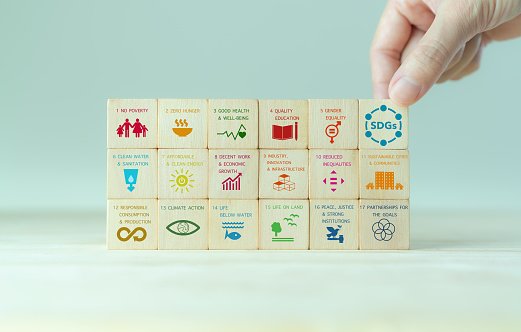Youth digital engagement is crucial for achieving SDGs

© UNICEF
On International Youth Day, UN Secretary-General António Guterres underlined the significance of giving young people equal opportunities and empowerment to achieve the Sustainable Development Goals (SDGs). The day’s theme, “From Clicks to Progress: Youth Digital Pathways for Sustainable Development,” highlights how young people may use technology to accelerate sustainable development. Guterres applauded the younger generation for efficiently using digital tools to tackle global concerns like mental health and climate change. Young people are driving digital adoption and creativity despite gaps in internet access, particularly among women and low-income nations. Guterres called for eliminating gender inequalities in the tech industry, encouraging young people to build digital solutions, overcoming digital divides, and investing in education, critical thinking, and information literacy to accomplish the SDGs. In light of how AI is changing society, he also emphasized the significance of young people getting involved in developing digital institutions and policies. At the next Summit of the Future, where world leaders will debate concepts and solutions for a more sustainable future, the UN urges states to promote young involvement. In addition to pledging UN support for youth, Guterres stressed the importance of youth in shaping a sustainable future for everyone.
Youth jobless rate falls to 15-year low, says UN labour agency

© ILO/Marcel Crozet
According to data from the International Labour Organisation (ILO), rates of youth unemployment around the world have decreased but are still unfairly distributed. Even while there have been increases in regions like Southeast Asia and the Pacific, the Arab States, East Asia, and the Arab States, women in particular still struggle to find good jobs. Not in Employment, Education, or Training, or NEETs, is a problem that the ILO also brought attention to, as over one in five young people fall into this group. Since two out of every three NEETs are female, women are disproportionately affected. Furthermore, with around 65 million young people unemployed last year, it has become more and more difficult to get respectable and stable employment. The report stressed that young workers, particularly those in low-income nations, require more chances and social safety. Gender discrimination in the workplace continues to be a serious problem, as women are less likely to obtain high-skill occupations and have greater percentages of NEETs. To solve these problems, the ILO urged immediate action, which included boosting the creation of high-skill jobs, encouraging the development of digital and green skills, and guaranteeing equal opportunity for all young people. The organization emphasized that social justice, inclusivity, and peace depend on making investments in the futures of young people.
UN provides emergency cash injection for global crisis hotspots

© UNICEF/Frank Dejongh
From its Central Emergency Response Fund (CERF), the UN has set aside $100 million to help humanitarian efforts in a number of underfunded global crises. Among the nations receiving aid are Yemen, Ethiopia, Myanmar, Mali, Burkina Faso, Haiti, Cameroon, Mozambique, Burundi, and Malawi. The funds are meant to tackle the combined effects of El Niño-induced drought and flooding, diseases, hunger, and climatic disasters. In order to prevent the worst and save lives in these situations, Joyce Msuya, acting Under-Secretary-General for Humanitarian Affairs and Emergency Relief Coordinator, emphasized the urgent need for greater resources. She underlined that money for the CERF comes last when other sources of humanitarian aid are insufficient. Following a prior provision of $100 million in February, this $100 million is the second in 2024 for underfunded emergencies. The $200 million total for this year, however, is the lowest sum in the previous three years, highlighting the widening funding shortage. Just 29% of the $49 billion that the humanitarian community is attempting to reach 187 million vulnerable people globally has been received.
Africa: Refugees and displaced face heightened threat from mpox outbreak

© UNICEF/Jospin Benekire
Without prompt assistance, the ongoing mpox outbreak might have a serious negative effect on refugees and displaced families in the Democratic Republic of the Congo (DRC) and neighboring African nations, according to a warning from the UN Refugee Agency (UNHCR). The outbreak’s epicenter, South Kivu Province in the Democratic Republic of the Congo, has reported 42 possible cases of mpox. In the Democratic Republic of the Congo, there have been over 18,000 suspected cases, 615 deaths, and further cases reported in Rwanda and the Republic of the Congo. Within the DRC’s conflict-affected regions, where 7.3 million people are internally displaced, the outbreak has been deemed a Public Health Emergency of International Concern (PHEIC) by the WHO. It is practically impossible for displaced groups to implement preventive measures or separate people who are exhibiting symptoms due to overcrowding and restricted access to key services. UNHCR is coordinating with WHO and national authorities to strengthen health system readiness. This includes improving cleanliness standards and increasing public awareness. To improve health services and make sure that refugees and internally displaced people are part of the response operations, the UNHCR urgently requests international support.
References
https://news.un.org/en/story/2024/08/1153086
https://news.un.org/en/story/2024/08/1153056



